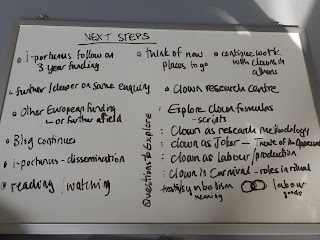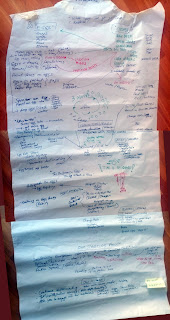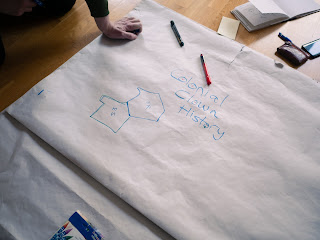Final Day Assessments

On our last day together in Athens, the three of us revisited the project and reflected on: - 2 days collaborating with others - the whole project and the lessons we can draw - what we want to do next Group cohesion and complicity Compared to the first day, the second day with collaborators brought a higher level of cohesion and group complicity. This probably arose from having a group organization, with tasks assigned from the beginning of Day 2, as opposed to Day 1 when each individual could set their own tasks. Particularly on the return to the workspace, there was much more group work than on the journey from the workspace to the designated place of action on Day 2. However, valorising this is not an easy task. Some collaborators, in the feedback, valued the individual freedom of Day 1 over the group cohesion of Day 2. The feedback of others was the opposite. In general, this valorisation was related to the fun that the person reported having. This raises another question: how is


